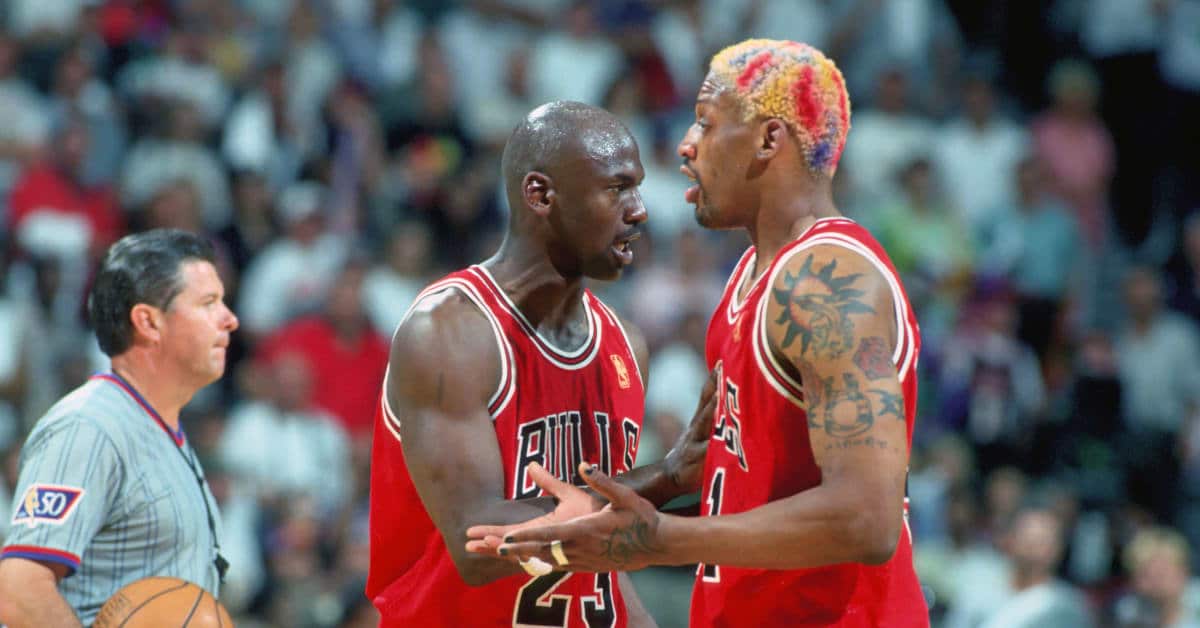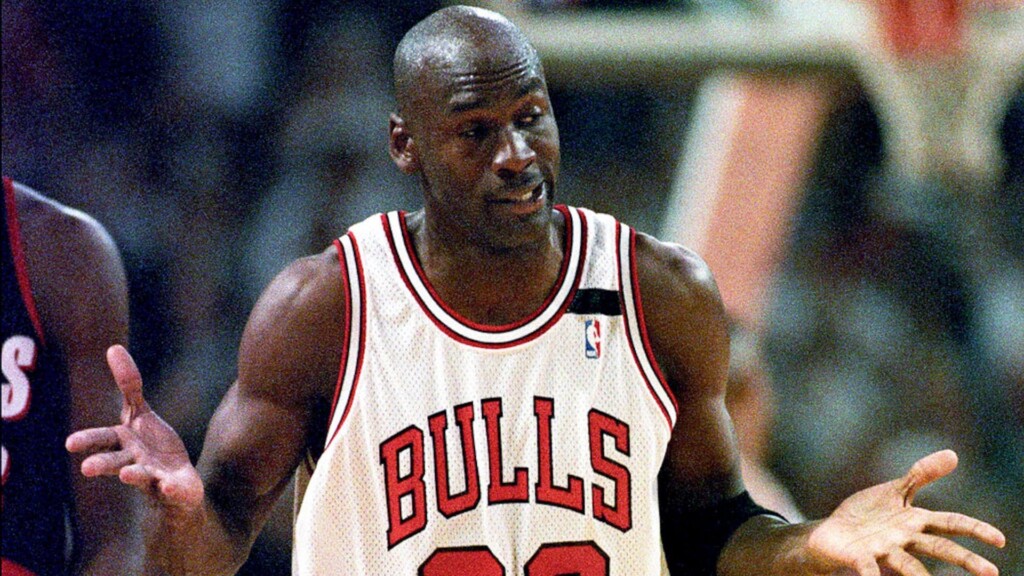‘Fed up’ Michael Jordan cost Bulls fourth straight NBA title, claims Dennis Rodman
Dennis Rodman played a pivotal role for the Chicago Bulls, contributing significantly to the team's legendary legacy.

Michael Jordan and Dennis Rodman (via USA Today)
The Chicago Bulls, widely regarded as one of the most dominant teams in NBA history, reigned supreme throughout the 1990s until their breakup orchestrated by GM Jerry Krause. Led by the legendary Michael Jordan, the Bulls achieved unparalleled success. Upon Jordan’s return from retirement, the team further bolstered their lineup by acquiring Dennis Rodman, widely considered the premier rebounder in the league at the time. Together, they forged an exceptional run, securing three consecutive championships in 1996, 1997, and 1998, cementing their status as a powerhouse team.
In a recent appearance on VladTV, Dennis Rodman expressed that the primary reason the Chicago Bulls did not achieve a fourth consecutive championship was not solely due to Jerry Krause’s decision regarding Phil Jackson’s return. According to Rodman, he pointed out that Jordan getting fed up and his eventual departure from the team significantly impacted their chances of winning another title.
“I mean, he (Phil Jackson) wrote a playbook about it, said this is the last dance, and he wasn’t coming back. I’m like, damn, man. And like, wow, this is it. Because the next year. The next year. It was a half-season. I said we could have won the state for four in a row. I said, hey, let’s bring this…bring everybody back together. Let’s bring them back together, stuff like that. But it’s like, wow, man,” Rodman said.
“Some days you look back and say, we could have went four in a row, easy. But I think Michael (Jordan) got fed up, and I did. Scottie (Pippen) stayed. I think Michael left. Michael left. They bring me back. Phil left. And that was it.”
There is a prevalent belief within the community that a four-peat for the Chicago Bulls was indeed feasible. This belief stems from the fact that the 1998-99 season, which followed their three consecutive championships, was shortened due to a lockout, resulting in only 50 regular season games. In that season, the top-seeded San Antonio Spurs, led by Tim Duncan and David Robinson, emerged victorious against the 8th seed from the Eastern Conference, the New York Knicks.
Given the Bulls’ dominance under Michael Jordan’s leadership, it is speculated that they could have successfully navigated the Eastern Conference and potentially claimed their seventh championship, completing a historic four-peat.
Related: “My father’s about 5’10,” Michael Jordan once claimed his mother cheated on father with 6’7 milkman
What happened to Michael Jordan after the 1998 championship?

Following winning his sixth championship and sixth Finals MVP, Michael Jordan chose to retire from playing basketball. Soon after, he assumed the position of General Manager at the Washington Wizards by acquiring a minority stake in the franchise.
However, at the age of 38, Jordan surprised the world by making a comeback as a player for the same team he held a management role in. Despite his age, Jordan showcased his enduring greatness by earning All-Star selections in both seasons he played for the Wizards. Eventually, in 2003, he decided to retire for good, leaving behind a legacy that solidifies his status as arguably the greatest player of all time.
MJ’s passion for the game led him to further involvement in the basketball world as he purchased a majority stake in the Charlotte Bobcats (now known as the Charlotte Hornets) in 2010. However, unlike the tremendous success he experienced during his playing career, the team has not achieved the same level of accomplishment. Since MJ’s ownership, the Bobcats/Hornets have only reached the playoffs twice and have not been able to advance past the first round.
After a 13-year run overseeing the Charlotte Hornets, Michael Jordan made the decision to sell the majority stake of the team, marking the end of his ownership tenure. Although he divested his majority stake, reports suggest that Jordan has retained a minority stake to retain a connection and ongoing involvement with the franchise.
In Case You Missed:
- Jordan Poole takes SUBTLE DIG at Warriors after horrific season and trade to Wizards
- DISAPPOINTED Joel Embiid breaks silence about James Harden’s trade request to exit 76ers

